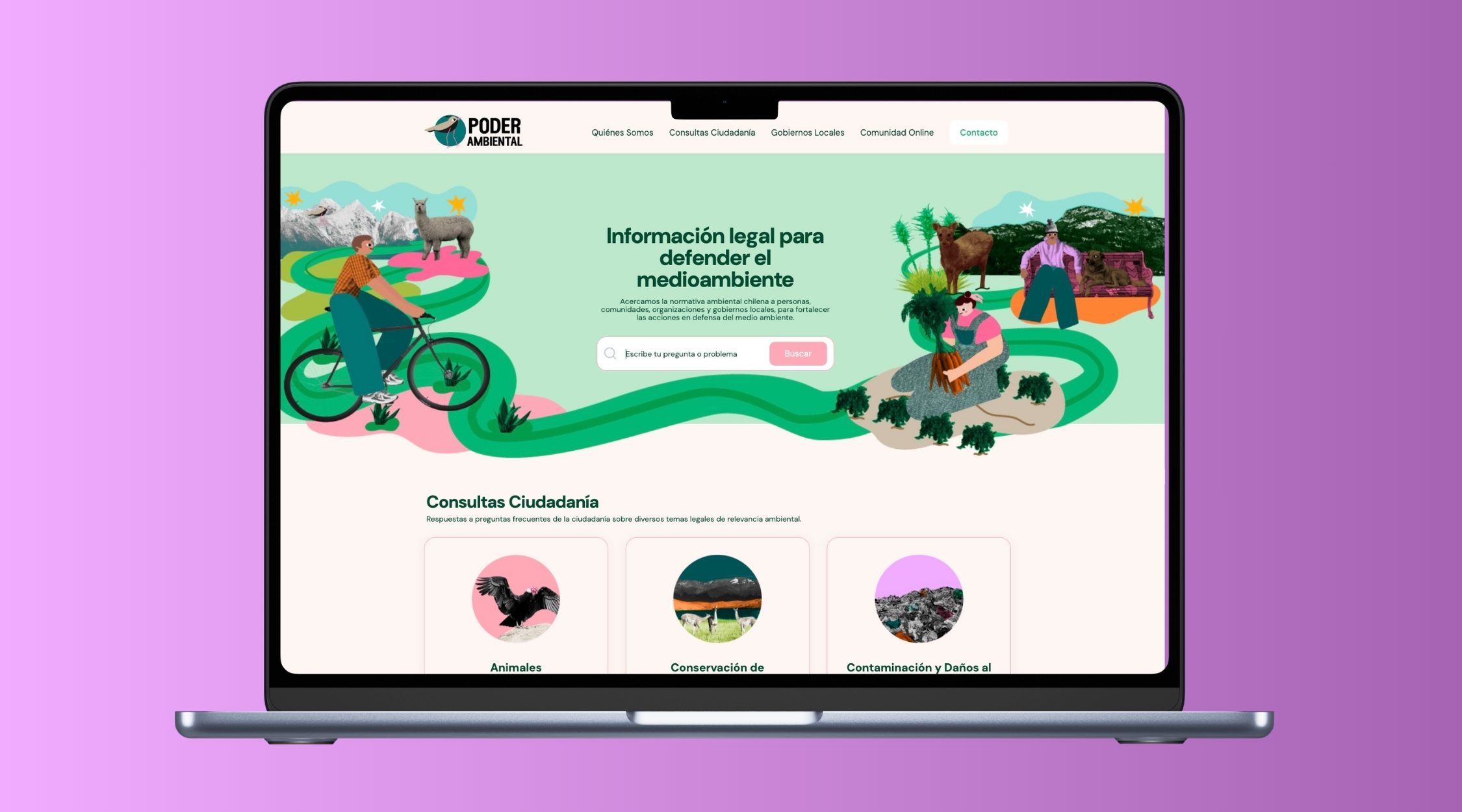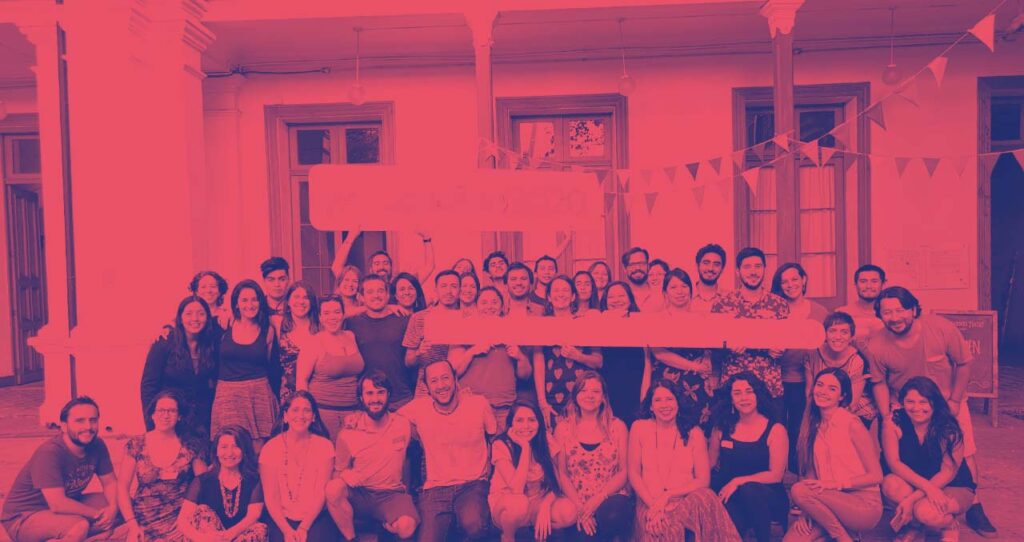Poder Ambiental: A Digital Platform for Environmental Defenders
2024-2025
Client
FIMA

Introduction and Goal
Poder Ambiental is an initiative by FIMA, a Chilean NGO that champions access to environmental justice. Originally, the goal was to redesign PoderAmbiental.cl, a website FIMA had created to provide people, especially environmental defenders, with legal information.
Through a human-centred design process, we reimagined the site as a self-service knowledge base, focused entirely on findability. We also introduced new back-end processes to help the organisation respond to queries more efficiently, and we created a community-led forum to facilitate the exchange of knowledge and good practice.
Working on this project was a privilege. Not only because the team was bold, open, and genuinely appreciative, but also because they were remarkably willing to challenge their own assumptions. Despite being lawyers themselves, they committed to empathising with the needs of everyday people. This was a constant source of learning, particularly in how to co-design a low-maintenance, high-impact product that could scale and endure within the complex and resource-constrained context of a Latin American NGO.
The process was deeply rooted in human-centred design, with a strong emphasis on discovery and user research before settling on a solution. We then iterated through early-stage testing and post-launch improvements to arrive at a final product that exceeded adoption expectations.
Aha! Moments and Key Learnings
1. Making legal content accessible to everyone
One of the biggest challenges was persuading a team of legal experts to communicate in plain language. Lawyers are trained to be precise, avoid liability, and use legal terminology. However, FIMA’s team showed a genuine commitment to making their content user-friendly.
We used SEO keyword research to understand how people actually search for legal topics and rewrote content using those terms. A team of SEO-trained editors reworked initial drafts written by lawyers, always keeping the audience in mind. Although it required numerous revisions, the effort paid off. We also delivered training to FIMA’s staff and collaborators on SEO basics, helping ensure that future content would remain findable.
2. From a website to a customer support product
FIMA initially approached me for a website redesign. But using a people-centred approach, we began by asking users what they needed. We explored different systems and competitors, and the concept evolved from a simple site to a knowledge base—and then into something broader.
People weren’t just looking for information; they needed tailored answers. Legal questions often depend on context. So the concept matured into a customer support system. We introduced a ticketing tool allowing users to submit questions to FIMA’s legal team and receive personalised responses. In a world of poor chatbot experiences, this human-centred approach made a real difference.
3. Ensuring long-term sustainability
In the charitable sector, budgets are tight. We needed a platform that was not only effective but also affordable and easy to maintain. After assessing various tools and technologies, we chose HelpScout—a client support platform with excellent NGO discounts for environmental organisations. FIMA qualified, meaning the ongoing software cost was negligible.
4. Beyond the platform: a digital transformation
This wasn’t just a new website—it was a small but significant digital transformation. FIMA migrated from WordPress, which, in this case, had become a liability due to its complexity. HelpScout offered fewer options, but only the ones that mattered. It was intuitive and fit perfectly with the team’s workflow.
The support ticket system enabled the legal team to coordinate their responses efficiently and use their specific areas of expertise in a more structured way, ultimately improving both speed and quality of service.
4. People learning from people
One of the key insights from late-stage testing was the desire among users—particularly environmental defenders in civil society—not just to get expert help, but to learn from peers. We added a community forum using Discourse.org, allowing users and lawyers to share their experiences and knowledge openly.



Illustrations by Karin Watson.
The Outcome
A phased launch strategy, starting with local governments, provided early feedback that helped us iterate quickly. The final user tests confirmed the product was intuitive, engaging, and fit for purpose.
Highlights:
- Improved Engagement
The site’s design and content were praised for clarity and usability. User testing showed people could easily find what they were looking for, even when unfamiliar with legal terminology.
- SEO and Traffic Success
With targeted SEO strategy and content design, the site saw a major uptick in organic traffic. Between May and December 2024, PoderAmbiental.cl reached 21,000 users—a 150% increase. Over 70% of the 14,242 sessions in one period came from organic search.
- Enhanced Support Tools
The integration of HelpScout and Discourse created a seamless support ecosystem. Automated workflows, intelligent search, and content restructuring made both usage and management more efficient.
Credits and Role
This project was a collaborative effort between FIMA and a multidisciplinary team. I served as principal consultant, leading the digital strategy, stakeholder workshops, design iterations, and technical implementation. My role bridged design, technology, and strategy, ensuring the final product aligned with user needs and organisational capacity.
SEO Editors: Ignacio Torres and Lorna Campos
Writer: Micaela Lobos
Graphic Design: Karin Watson
Audiovisual: Carlos Garrido
Platform: HelpScout


